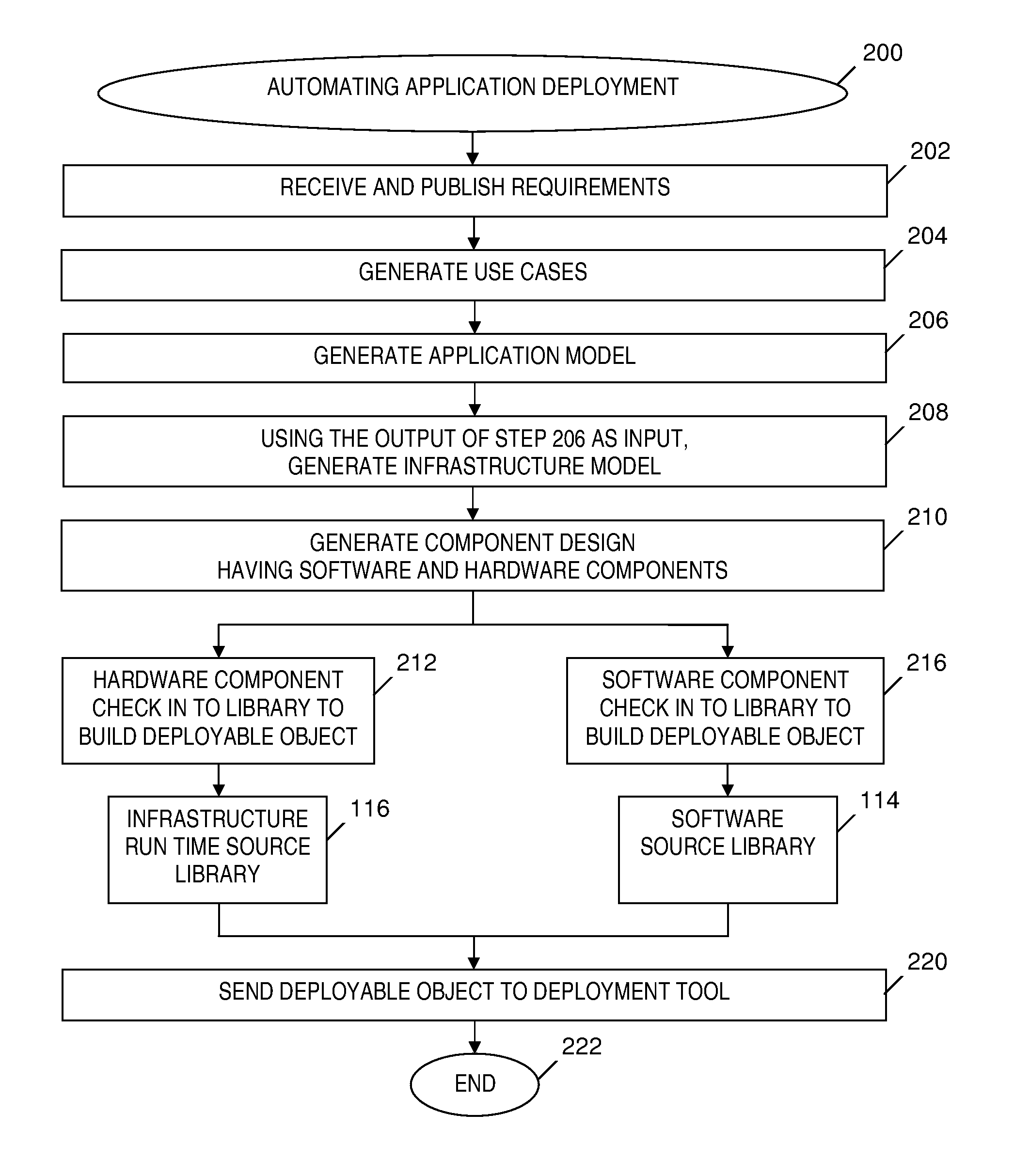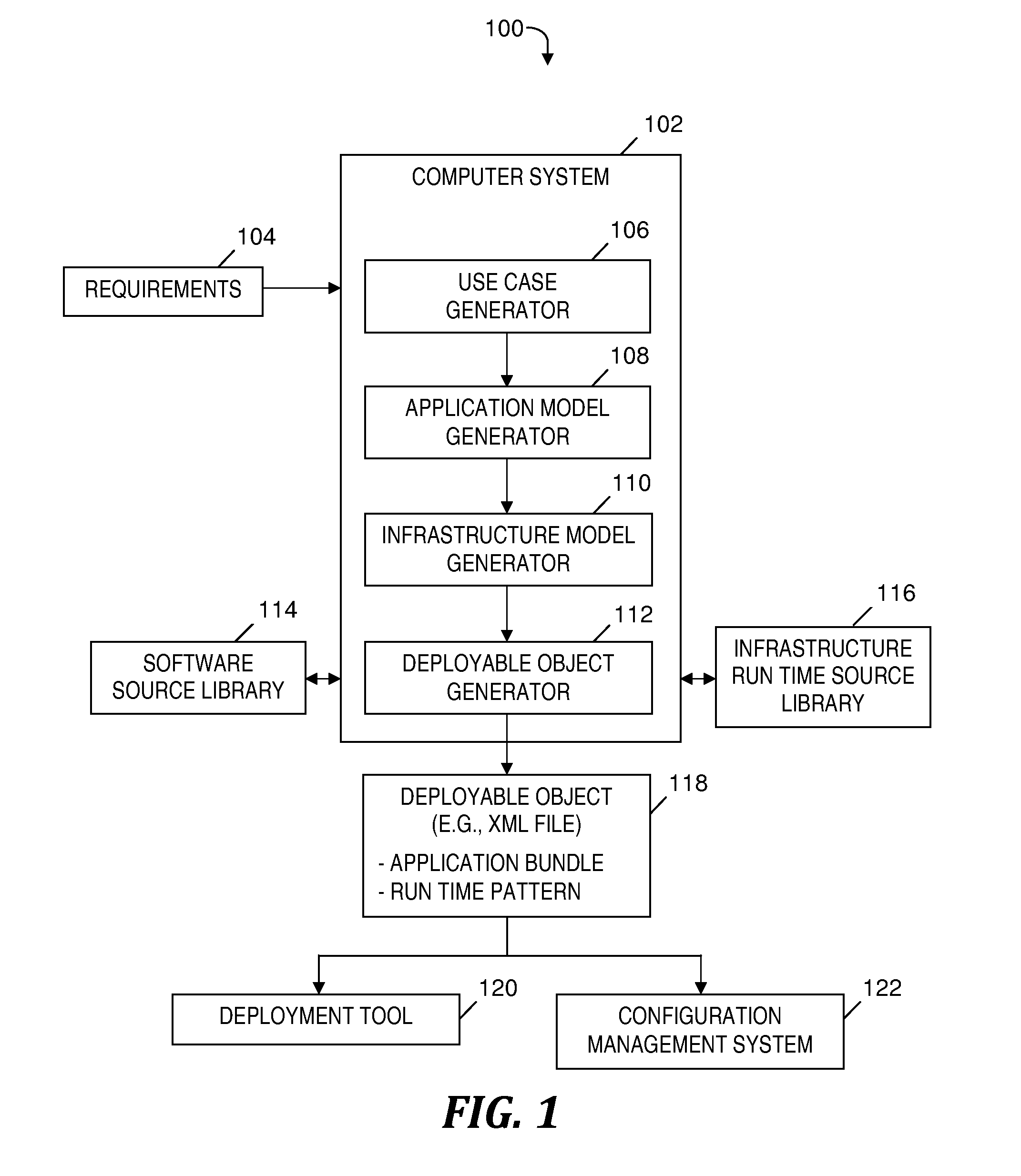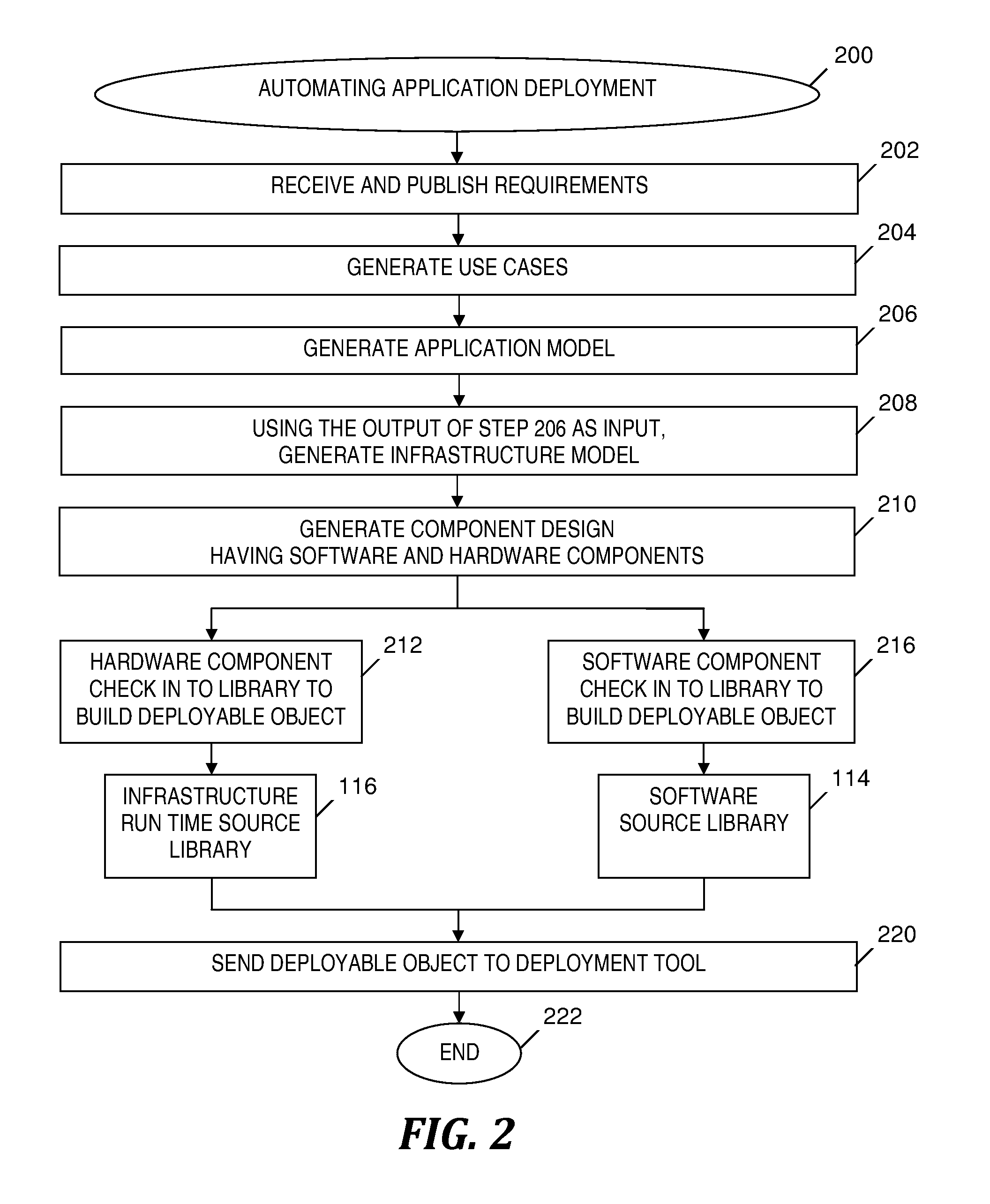End to end automation of application deployment
a technology of application deployment and end-to-end automation, applied in the field of data processing method and system for automating application deployment, can solve the problems of significant cost, inflexible application components and infrastructure building blocks, and inability to meet the needs of application and infrastructure development, so as to reduce infrastructure design time, reduce infrastructure and application deployment time, and reduce implementation project costs
- Summary
- Abstract
- Description
- Claims
- Application Information
AI Technical Summary
Benefits of technology
Problems solved by technology
Method used
Image
Examples
Embodiment Construction
1. Overview
[0020]Using a service-oriented architecture (SOA) approach to application development and systems integration in the software space allows for the generation of executable code into a software repository that can subsequently be deployed to a target. Embodiments of the present invention extend the aforementioned SOA approach to infrastructure design. A software bundle (a.k.a. application bundle; i.e., the software-based application or system that is to be deployed to satisfy business requirements) and an infrastructure stack (i.e., the hardware components that are required to run the application or system to be deployed) may be defined in the same format, which can be understood by an automated deployment tool. Thus, an application or a complete system may be modeled and deployed, end to end automatically, without intervening steps that are manually performed by one or more humans.
[0021]The end to end automation of application deployment links all phases in the design of ...
PUM
 Login to View More
Login to View More Abstract
Description
Claims
Application Information
 Login to View More
Login to View More - R&D
- Intellectual Property
- Life Sciences
- Materials
- Tech Scout
- Unparalleled Data Quality
- Higher Quality Content
- 60% Fewer Hallucinations
Browse by: Latest US Patents, China's latest patents, Technical Efficacy Thesaurus, Application Domain, Technology Topic, Popular Technical Reports.
© 2025 PatSnap. All rights reserved.Legal|Privacy policy|Modern Slavery Act Transparency Statement|Sitemap|About US| Contact US: help@patsnap.com



